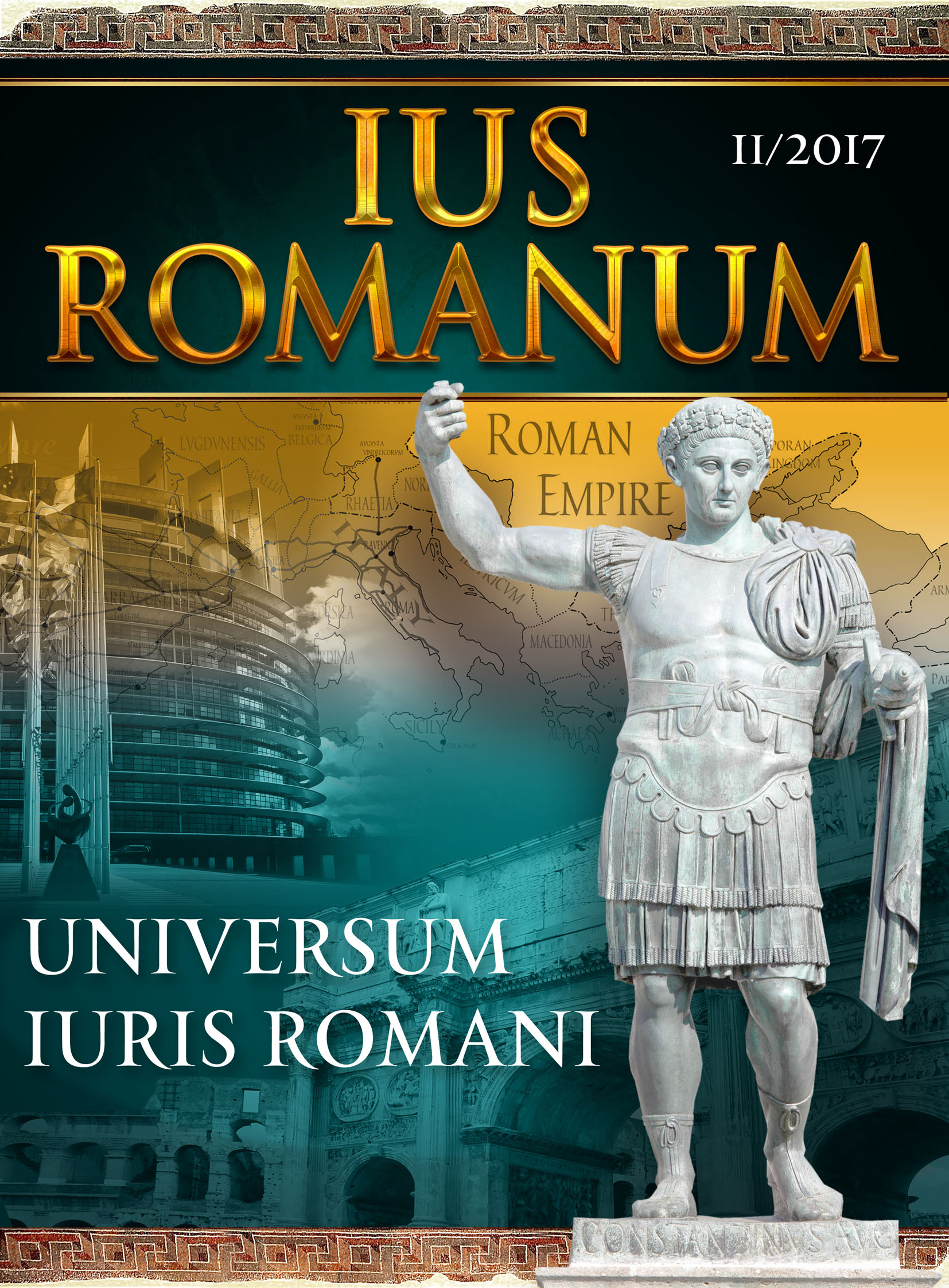L’UNIVERSALISME JURIDIQUE ET L’AEQUITAS, QUASI SIGILLUM ANTI-TRIBALISTE
DU DROIT ROMAIN CLASSIQUE
UNIVERSALITY AND AEQUITAS OF CLASSICAL ROMAN LAW
Author(s): Valerius M. CiucăSubject(s): Law, Constitution, Jurisprudence, History of Law, Civil Law, EU-Legislation
Published by: Софийски университет »Св. Климент Охридски«
Keywords: Roman law; Roman legal tradition;
Summary/Abstract: In an endevour to research and identify the most important qualities of the protean system of Roman Law during its progressive development related to the history of Roman State and society, but, also, beyond their formal chronology, probably, starting with William Burdick's conceptions (expressed in his major work, The Principles of Roman Law and Their Relation to Modern Law, elaborated at the University of Kansas, USA, 1938), the most important idea is that the Roman law, grosso modo, is characterized by its unique universalism and profound spirit of equity. It is a non-tribalistic system, an organic and praetorian class of rights, jurisprudentially dedicated to find the equitable way in order to reach the best legal solutions in the private law litigations. Mutatis mutandis, this system tries to respond, avant la lettre, to the Vincent de Lérins three criteria separating truth and untruth (veritas & error): Quod ubique, quod semper, quod ab omnibus creditum est.
Journal: IUS ROMANUM
- Issue Year: 2017
- Issue No: 2
- Page Range: 55-76
- Page Count: 22
- Language: French

